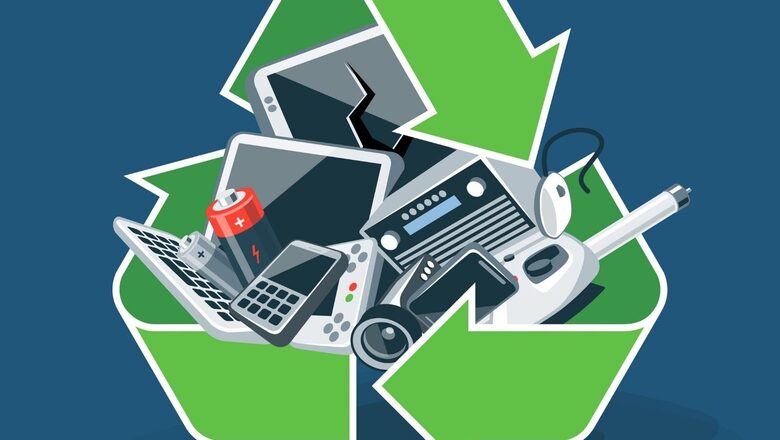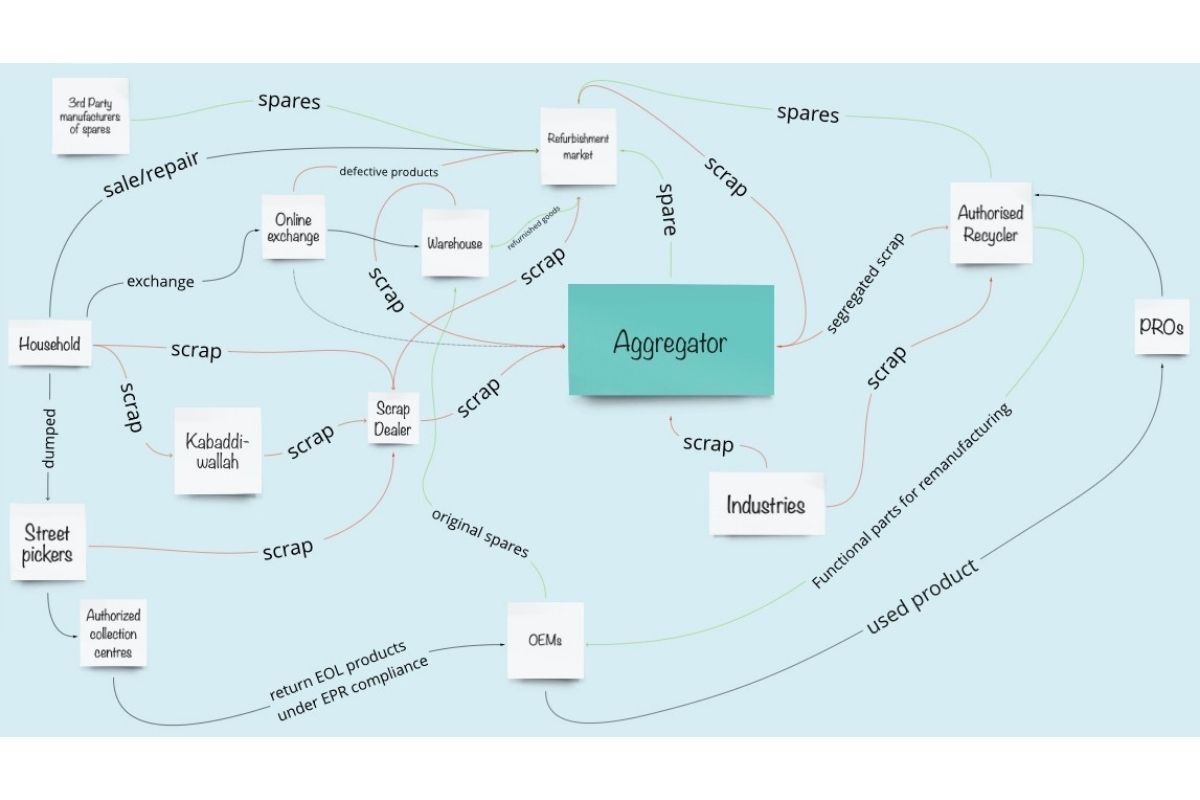
views
The Indian Institute of Technology (IIT) Madras is developing a model to tackle electronic wastes or e-waste by linking buyers and sellers in the formal and informal economies. To be called ‘e-Source,’ the digital platform will be an exchange platform for Waste Electrical and Electronic Equipment (WEEE) and facilitate a formal supply chain between various stakeholders, says the IIT.
“According to studies, currently the world annually generates 53.6 million tonnes of e-waste, which is expected to double in the next 16 years. Studies also estimated that 85 percent of this is being lost globally. IIT Madras researchers, focused on the ‘circular economy,’ are working to address the gaps in the e-waste sector, which can potentially open doors to a $50 billion economy,” the institute says.
Between 2019 and 2020, Indians generated 38 percent more e-waste. Only five percent of e-waste is recycled responsibly in the country, adds the institute.
This e-waste initiative is being spearheaded by Indo-German Centre for Sustainability (IGCS) and aims to make WEEE a key resource in the evolution of a circular economy by establishing traceability and recovery of post-consumer e-waste in the market.

Prof Sudhir Chella Rajan, Faculty Member, Indo-German Centre for Sustainability (IGCS), IIT Madras explains, “E-wastes are typically either completely stripped down for precious metals and other high-value materials or dumped in landfills, without exploring potential re-use and repurposing options. Unscientific recycling methods are harmful to waste handlers and the environment.”
Chella adds that the initiative will “evolve towards using machine learning for better traceability of e-waste in compliance with guidelines and help increase the opportunities for repair and re-use of e-waste. This will potentially improve livelihoods for youth and women in periurban settings by upgrading their skills and improving occupational health and safety, reduce the flow of toxic materials in waste streams and broaden the market for affordable, second-hand e-devices.”
The team has completed the initial market research and mapping of the various stakeholders in the e-waste ecosystem through direct on-the-ground/telephonic conversations and consultations combined with secondary research. The beta version of the online platform is ready, claims the institute.
The IIT Madras team would be deploying a detection system that uses a combination of image processing and natural language processing techniques to extract product information and upload it to the database.
Once significant data sets are available, the team would advance towards deploying machine learning capabilities to ensure easy retrieval of the products.
The future plans of the e-Source initiative include developing targeted outreach campaigns to bridge the knowledge gap for all users, especially informal actors, on the use of a digital platform and the benefits of the platform. “The intent is to on-board users without exposing or posing any threat to their existing livelihoods,” says IIT Madras.
Read all the Latest News, Breaking News and Assembly Elections Live Updates here.
















Comments
0 comment